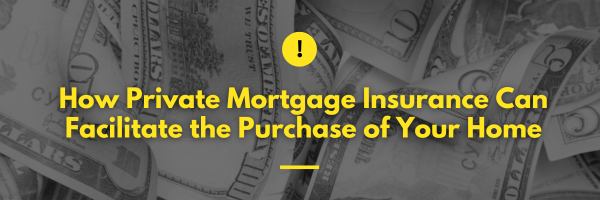
Everything You Need to Know About PMI (Private Mortgage Insurance)
Hello, dear reader,
Today I want to talk to you about something that may sound a bit technical, but is crucial if you're thinking about buying a house with a small down payment. I'm referring to PMI, or Private Mortgage Insurance.
What is PMI and Why is it Important?
PMI is a type of insurance that you'll likely have to pay if your down payment is less than 20% of the property value. But why does this insurance exist and who is it designed for? PMI protects the lender, not you. Yes, you read that right. If you default on your mortgage, PMI covers the lender's losses. It's a safety net for them, given that you represent a higher risk with a smaller down payment.
How is PMI Paid?
There are several ways to pay for PMI, and it's important to know each one so you can choose the one that best fits your financial situation:
- Monthly premiums: The most common method. A fixed amount is added to your monthly mortgage payment.
- Annual premiums: You'll pay an upfront annual premium, which is usually divided into monthly payments.
- Upfront premiums: You can choose to pay the entire insurance premium in one lump sum at the closing of the mortgage. This may be an option if you have extra money available and prefer not to have an additional monthly cost.
How Much Does PMI Cost?
The cost of PMI varies. Factors such as the loan amount and the percentage of your down payment influence the premium. For example, if your mortgage is $200,000 and your PMI rate is 1%, you would pay $2,000 per year or approximately $167 per month.
How and When Can I Stop Paying PMI?
The good news is that you won't have to pay PMI forever. Once you've accumulated enough equity in your home, you can request PMI cancellation. This typically occurs when your loan balance falls below 80% of the original property value. Additionally, some laws, such as the Homeowners Protection Act in the United States, require lenders to automatically cancel PMI once the loan balance reaches 78% of the home's value, provided you're up to date on payments.
Is PMI Good or Bad for You?
While PMI represents an additional cost, it can also be the key that allows you to buy a home before saving up a 20% down payment. Without PMI, many people would have to wait years before being able to buy a home. So, while you may pay a bit more each month, you could be investing in your future and homeownership, which you might not have achieved otherwise.
Conclusion
PMI may seem like an unwanted additional cost, but it's a valuable resource for those looking to enter the housing market without a 20% down payment. If you understand how it works and how it can eventually be canceled, PMI can be a tool that brings you closer to your dream of homeownership.
Note of Clarification
The information provided in this article aims to give you a general understanding of Private Mortgage Insurance (PMI). However, every mortgage situation is unique, and conditions and regulations may vary. I recommend consulting with a financial advisor or your lender for specific and detailed information about your particular case. Additionally, I can recommend some financial institutions that I have contacts with or have been working with.
I hope this explanation has been helpful to you. If you have further questions or need assistance with your mortgage, feel free to contact me. I'm here to help you every step of the way toward your new home.
Best regards and until next time,
Jorge Mastrapa, Real Estate Advisor.




